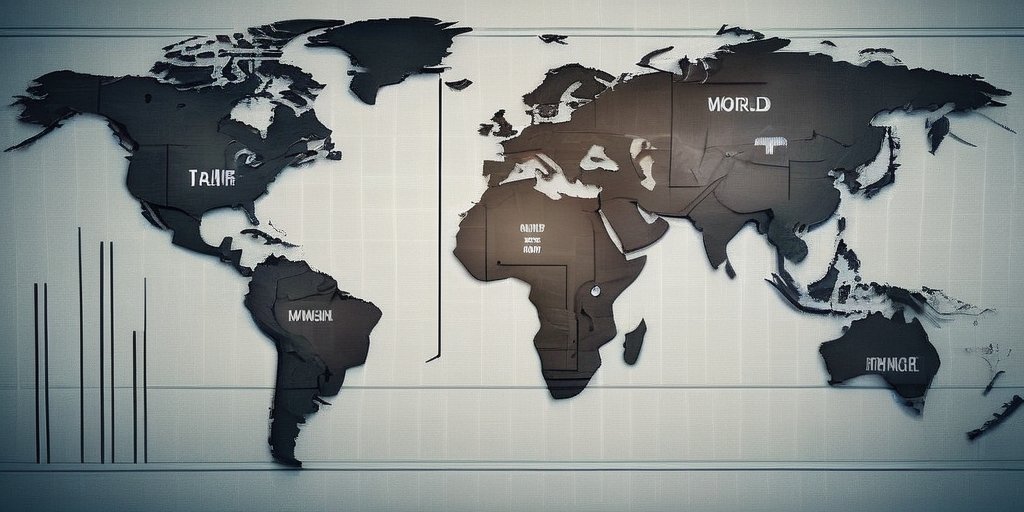As stock markets in Asia and Europe take a nosedive in response to President Donald Trump’s upcoming tariff announcements, fears over a potential trade war loom large. Trump hinted at imposing new tariffs not just on countries with significant trade imbalances but extending this measure globally. This announcement is part of his broader strategy heading into what he dubs America’s ‘Liberation Day,’ scheduled for Wednesday.
The upcoming tariffs are expected to intensify the already tense trade relations after previous impositions on aluminum, steel, and vehicles, alongside increased levies on all Chinese goods. During a briefing on Air Force One, Trump noted, “You’d start with all countries,” suggesting that his new approach would encompass a broader range of nations. However, he reassured that this administration would be “far more generous” and “kinder” than the treatment received by the U.S. from other countries.
In the United Kingdom, discussions are underway seeking exemption from these tariffs, with Prime Minister Sir Keir Starmer having had what he described as “productive negotiations” with Trump. Other countries, including the European Union and Canada, have indicated readiness to retaliate against the U.S. if necessary.
Some officials, including Kevin Hassett from the National Economic Council, have indicated that the tariffs could primarily target 10-15 nations facing the worst trade deficits with the U.S. Trump views these tariffs as essential protective measures for the American economy while also serving as tools for negotiating better trade agreements.
The tumultuous market reaction is evidenced by Japan’s Nikkei index dropping over 4%, South Korea’s Kospi declining by 3%, and the UK’s FTSE 100 down by about 0.8%. As investors seek refuge amidst market uncertainty, gold prices have skyrocketed, reaching $3,128.06 per ounce.
Advisers within Trump’s administration have posited that the tariffs could yield substantial revenues, potentially raising $600 billion annually and creating millions of jobs. Nonetheless, questions remain about the economic implications as higher import costs can lead to inflation if businesses transfer these expenses to consumers or curtail investments.
Industry voices like Will Butler-Adams, CEO of Brompton Bicycle, express reservations regarding the tariffs, indicating potential negative effects on competitiveness and investment in the U.S. market. As they navigate this uncertain terrain, many businesses are left grappling with the implications of the proposed trade measures on their operations and growth. Overall, as Trump prepares to announce these tariffs, markets remain jittery, reflecting widespread concern about their potential fallout.
